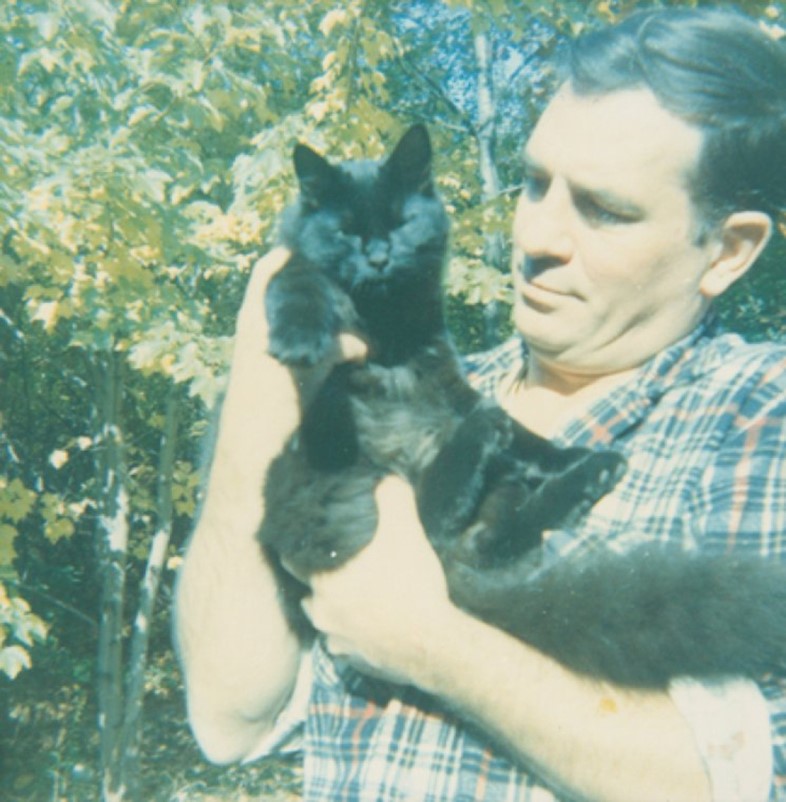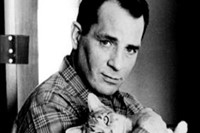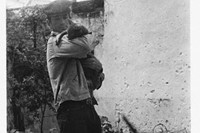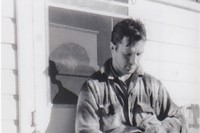We remember Jack Kerouac and his fondness for felines
Born 92 years ago tomorrow, Jack Kerouac is best remembered as the free-spirited Beat pioneer with a penchant for babes, booze and bohemian exploits. But, as the more devoted of his readership will be aware, he was also a self-proclaimed “cat lover”. Kerouac owned a number of felines throughout his lifetime, but his favourite was Tyke, “a big beautiful yellow Persian the kind they call calico,” whose death he poignantly documented in his 1962 memoir Big Sur.
Persians are longhaired cats characterised by their round faces and shortened muzzles. As the name suggests, the breed is thought to have originated in Persia (now Iran), although its history is still much disputed. What is known is that the breed was officially recognised by the cat fancy by the late 19th century, and popularised in the USA by American breeders after the Second World War. Persians are extremely popular pets owing to their sweet, tolerant natures and regal characters. Their coats come in many different varieties, including blue, black and calico (predominantly white, with patches of two other colours). Other famous Persian owners include Thomas Hardy, Florence Nightingale and Raymond Chandler (whose black Persian he dubbed his “feline secretary,” always reading her the first drafts of his murder mysteries).
“I loved Tyke with all my heart, he was my baby who as a kitten just slept in the palm of my hand and with his little head hanging down, or just purring for hours” — Jack Kerouac
In Big Sur, Kerouac tellingly writes that his relationship with Tyke, as well as with his previous cats, had “always been a little dotty” as he psychologically identified them with his “dead brother Gerard who’d taught me to love cats when I was 3 and 4 and we used to lie on the floor on our bellies and watch them lap up milk.” Indeed, the heart wrenching passage in which he describes Tyke’s death is as tenderly described as if Tyke were a person:
“When we’re alone he says ‘Your mother wrote and said your cat is dead.’ Ordinarily the death of a cat means little to most men, a lot to fewer men, but to me, and that cat, it was exactly and no lie and sincerely like the death of my little brother -- I loved Tyke with all my heart, he was my baby who as a kitten just slept in the palm of my hand and with his little head hanging down, or just purring for hours, just as long as I held him that way, walking or sitting -- He was like a floppy fur wrap around my wrist, I just twist him around my wrist or drape him and he just purred and purred and even when he got big I still held him that way, I could even hold that big cat in both hands with my arms outstretched right over my head and he’d just purr, he had complete confidence in me -- and when I’d left New York to come to my retreat in the woods I’d carefully kissed him and instructed him to wait for me ‘Attends pour mue kitigingoo’ -- But my mother said in the letter he had died the NIGHT AFTER I LEFT.”
In her letter, Mrs Kerouac also wrote that she had buried her son’s beloved Tyke “under the Honeysuckle vines, the corner, of the fence” and noted that all the black birds in the garden seemed to know what was going on. “There was lots and lots of em flying over my head and chirping, and settling on the fence, for a whole hour after Tyke was laid to rest -- that’s something I’ll never forget -- I wish I had a camera at the time but God and Me knows it and saw it,” she told Kerouac. Kerouac himself died aged just forty seven of an internal hemorrhage possibly brought on by alcoholism. His friend and fellow Beat Allen Ginsberg memorably, and aptly, described him as “a very unique cat – a French Canadian Hinayana Buddhist Beat Catholic savant.”
Text by Daisy Woodward



